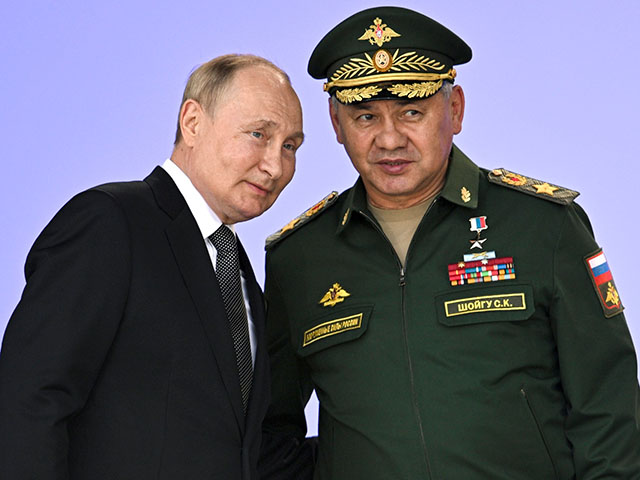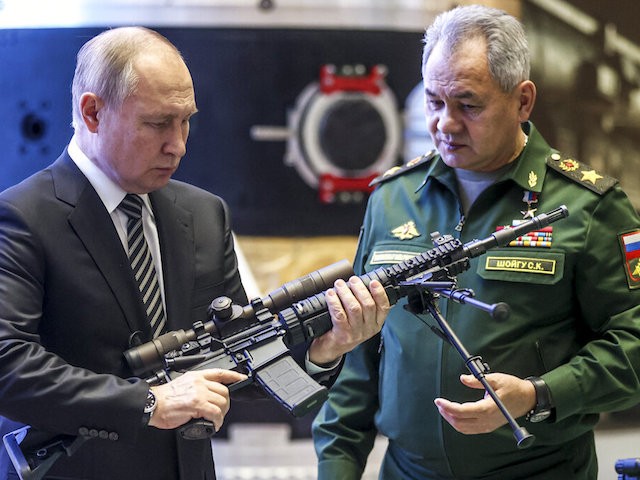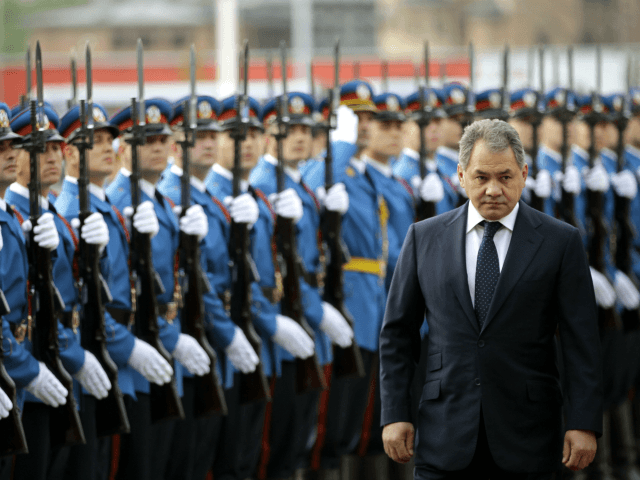Russia tasked its Defense Minister Sergei Shoigu to lead a delegation to North Korea this week for Thursday’s festivities in Pyongyang marking the 70th anniversary of the Korean War armistice agreement. The visit is Shoigu’s first high-level foreign engagement since the Wagner paramilitary group invaded Russia in June.
Wagner warlord Yevgeny Prigozhin marched what he claimed to be 25,000 soldiers out of Ukraine into Russia in late June on a mission to overthrow Shoigu, who he claimed was botching Russia’s invasion of Ukraine and had ordered a direct attack on Wagner’s mercenaries.
Prigozhin’s alleged plan to invade Moscow abruptly ended less than 24 hours after it began, forcing Prigozhin into exile in Belarus and leaving Shoigu’s job uncertain.
The Defense Minister has largely kept a low profile following the Wagner mutiny. His visit to North Korea, which began on Tuesday, offers an opportunity to represent Russia in a friendly environment where he will attend events intended to malign and oppose American influence in the world. The communist North Korean regime has been one of the most vocal defenders of Russia’s invasion of Ukraine on the international stage and the subject of rumors that dictator Kim Jong-un may consider sending North Korean forces to aid the war effort.
The Korean War remains technically active, meaning North and South Korea – and their respective allies, China and America – are in a formal status of war 73 years later. The armistice agreement of 1953 ended active hostilities, however, with the creation of the Demilitarized Zone (DMZ), which prevents either side from crossing and created the two Korean nations.
North Korea celebrates the armistice anniversary as “Victory Day” in the “Fatherland Liberation War,” despite the fact that no one has won the still-ongoing conflict.
Shoigu arrived in Pyongyang on Tuesday and met with North Korean Defense Minister Kang Sun-nam on Wednesday. According to Tass, Shoigu used the opportunity to emphasize Moscow’s interest in maintaining close ties to the communist North Korean regime and thank his hosts for their hospitality.

Russia’s President Vladimir Putin and Russian Defense Minister Sergei Shoigu attend the opening of the Army 2022 International Military and Technical Forum in the Patriot Park outside Moscow, Russia, Monday, Aug. 15, 2022. (Sputnik, Kremlin Pool Photo via AP, File)
“I am glad to make your acquaintance and meet with you. I happily accepted your invitation to visit Pyongyang, the capital of a friendly state. I am grateful to my Korean friends for the rich program you have offered,” Shoigu reportedly said, according to the Russian news agency Tass, to Kang. “From the very first minute, I felt your care and attention. I hope we will manage not only to work actively, but also to learn a lot of interesting things about North Korea, your culture and traditions, and see the sights.”
Shoigu reportedly credited North Korea, which maintains an illegal nuclear weapons program and routinely threatens to bomb both Seoul and Washington, with helping in “maintaining peace and stability on the Korean Peninsula.”
The Korean Central News Agency (KCNA), communist North Korea’s government news outlet, claimed that the regime of dictator Kim Jong-un organized a military display to enthusiastically welcome Shoigu and his cohort on Tuesday.
“Officers and men of the KPA [Korean People’s Army] warmly greeted the Russian military delegation, expressing their militant salute and full support for the Russian army and people,” KCNA reported, “who are struggling to defend the sovereign rights and development and interests of their country from the imperialists’ high-handed and arbitrary practices and to realize the international justice.”
KCNA predicted the visit would “significantly contribute to developing on a new high stage the strategic and traditional DPRK [North Korea]-Russia friendly relations, firmly forged on the road of anti-imperialist independence, in keeping with the demand of the times.”

Russian President Vladimir Putin, left, and Russian Defense Minister Sergei Shoigu visit an military exhibition after attending an extended meeting of the Russian Defense Ministry Board at the National Defense Control Center in Moscow, Russia, Tuesday, Dec. 21, 2021. (Mikhail Metzel, Sputnik, Kremlin Pool Photo via AP)
The Russian delegation was the second to be invited to the “Victory Day” celebrations on Thursday; China received the first invitation. China is North Korea’s closest ally and actively fought in the Korean War. The Russian and Chinese envoys are the first to be invited into North Korea since before the Wuhan coronavirus pandemic began, a sign that Kim is easing coronavirus restrictions for the long term and may soon once again allow the sanctions-violating trade with China across the Yalu River that largely sustained parts of North Korea for years. North Korea enacted a hard seal of that border, reportedly issuing shoot-to-kill orders to soldiers stationed there, in 2020.
Rodong Sinmun, the North Korean regime propaganda newspaper, teased a pre-pandemic-style “grand political festival” in Pyongyang for Thursday in the reports on Korean War veterans and other notable people traveling to Pyongyang on Wednesday.
“The celebrations serve as a significant occasion of powerfully demonstrating the unshakable faith and will of all the people, service personnel and rising generations of the DPRK,” Rodong Sinmun proclaimed, “to accomplish the great cause of building a wealthy state with powerful army with the heroic spirit of the great annals and precious victory as the cornerstone of development and existence.”
Also apparently in anticipation of this week’s parade, North Korea claimed to debut a new model intercontinental ballistic missile in mid-July, dubbed the “Hwasong-18” and allegedly using solid fuel. Pyongyang claimed, and the United Nations corroborated, that the Hwasong-18 test was successful and that the missile could hit “most points on Earth,” in the words of U.N. Security Council officials. The solid fuel base means that loading and preparing the missile to fire takes less time than with a liquid-fuel ICBM, giving the target less time to prepare.
Kang Sun-nam, the defense minister who met with Shoigu on Wednesday, warned in a missive published through KCNA last week that the presence of an American nuclear-powered submarine, the USS Kentucky, in South Korea “may fall under the conditions of the use of nuclear weapons specified in the DPRK [North Korea] law on the nuclear force policy.”

COMMENTS
Please let us know if you're having issues with commenting.